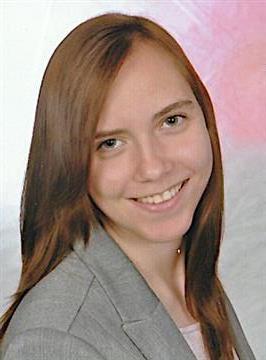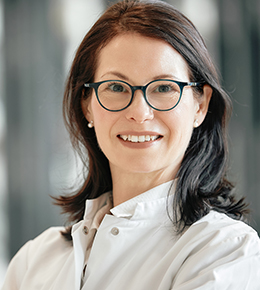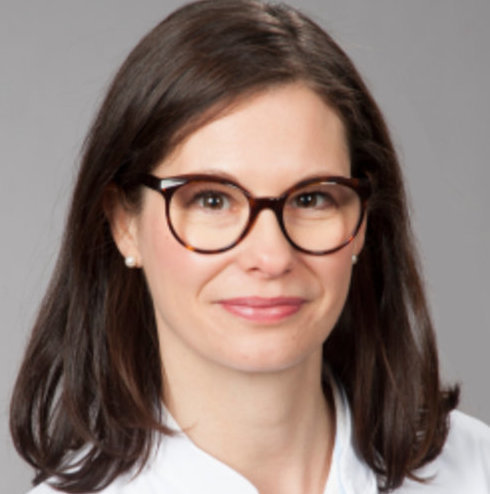

Fokus der Arbeitsgruppe liegt neben der gesundheitsbezogenen Lebensqualität und des psychosozialen Unterstützungsbedarfs neuroonkologischer Patient*innen auch auf der Optimierung deren Versorgung. Die Leitfrage hierbei ist: „Wie erleben Patientinnen und Patienten ihre Erkrankung und wie nehmen sie unsere Therapie wahr?“.
Wir konnten in mehreren Arbeiten zeigen, dass neuroonkologische Patient*innen unabhängig von der Tumorentität belastet sind und, dass sie aufgrund ihres speziellen Symptomprofils auch spezifizierte Erhebungsinstrumente benötigen. Daher untersuchen wir neue Methoden der Bedarfserfassung, z.B. im Rahmen einer multizentrischen Studie ein direktes Assessment des Unterstützungsbedarfs im Arzt-Patienten-Gespräch bei Patienten mit höhergradigen Gliomen und wir entwickeln eine App-basierten Erhebung der Lebensqualität für Patient*innen in speziellen Behandlungssituationen. Darüber hinaus arbeiten wir an neuen Modellen der Versorgung, u.a. Prehabilitation bei Glioblastom-Patient*innen.
Ausgewählte Publikationen
Eine aktuelle Liste aller Publikationen finden Sie auf PubMed
Dörner L, Grosse L, Stange F, Hille H, Kurz S, Becker H, Volkmer S, Hippler M, Rieger D, Bombach P, Rieger J, Weinert L, Svensson L, Anders C, Cekin S, Paulsen F, Öner Ö, Ruhm K, Malek HS, Möller Y, Tatagiba M, Wallwiener M, Eckert N, Escher P, Pfeifer N, Forschner A, Bauer A, Zips D, Bitzer M, Malek N, Gani C, Tabatabai G, Renovanz M. App-based assessment of patient-reported outcomes in the Molecular Tumor Board in the Center for Personalized Medicine-(TRACE). Neurooncol Pract. 2024 Jan 20;11(3):336-346.
Renovanz M, Kurz SC, Rieger J, Walter B, Becker H, Hille H, Bombach P, Rieger D, Grosse L, Häusser L, Skardelly M, Merk DJ, Paulsen F, Hoffmann E, Gani C, Neumann M, Beschorner R, Rieß O, Roggia C, Schroeder C, Ossowski S, Armeanu-Ebinger S, Gschwind A, Biskup S, Schulze M, Fend F, Singer S, Zender L, Lengerke C, Brucker SY, Engler T, Forschner A, Stenzl A, Kohlbacher O, Nahnsen S, Gabernet G, Fillinger S, Bender B, Ernemann U, Öner Ö, Beha J, Malek HS, Möller Y, Ruhm K, Tatagiba M, Schittenhelm J, Bitzer M, Malek N, Zips D, Tabatabai G. Clinical outcome of biomarker-guided therapies in adult patients with tumors of the nervous system. Neurooncol Adv. 2023 Feb 14;5(1):vdad012. doi: 10.1093/noajnl/vdad012. PMID: 36915613; PMCID: PMC10007909.
Neuro-oncological patients' and caregivers' psychosocial burden during the COVID-19 pandemic-A prospective study with qualitative content analysis. Binswanger J, Kohl C, Behling F, Noell S, Hirsch S, Hickmann AK, Tatagiba MS, Tabatabai G, Hippler M, Renovanz M. Psychooncology. 2021 Sep;30(9):1502-1513.
Development of screening questions for doctor-patient consultation assessing the quality of life and psychosocial burden of glioma patients: an explorative study. Voß H, Scholz-Kreisel P, Richter C, Ringel F, Singer S, Renovanz M. Qual Life Res. 2021 May;30(5):1513-1522.
Towards the targeted assessment of relevant problems: Optimization of the distress Thermometer for adult neuro-oncological patients. Goebel S, Knuth C, Damm M, Linden D, Coburger J, Ringel F, Tabatabai G, Mehdorn M, Renovanz M. Psychooncology. 2020 Dec;29(12):2057-2066.
Glioma patients in outpatient care-optimization of psychosocial care in neuro-oncological patients (GLIOPT): Protocol for a cluster randomized controlled trial. Renovanz M, Hippler M, Voss M, Wehinger J, Keßler AF, Gempt J, Nadji-Ohl M, Weiß Lucas C, Rapp M, Misch M, Coburger J, Mehlitz M, Meixensberger J, Keric N, Tabatabai G, Blettner M, Schranz M, Singer S. Trials. 2020 May 27;21(1):434.
Supportive Care Needs in Glioma Patients and Their Caregivers in Clinical Practice: Results of a Multicenter Cross-Sectional Study. Renovanz M, Maurer D, Lahr H, Weimann E, Deininger M, Wirtz CR, Ringel F, Singer S, Coburger J. Front Neurol. 2018 Sep 11;9:763.
Information needs of patients in spine surgery: development of a question prompt list to guide informed consent consultations. Renovanz M, Haaf J, Nesbigall R, Gutenberg A, Laubach W, Ringel F, Fischbeck S. Spine J. 2019 Mar;19(3):523-531.
Compliance with patient-reported outcome assessment in glioma patients: predictors for drop out. Renovanz M, Hechtner M, Kohlmann K, Janko M, Nadji-Ohl M, Singer S, Ringel F, Coburger J, Hickmann AK. Neurooncol Pract. 2018 May;5(2):129-138.
Factors associated with supportive care needs in glioma patients in the neuro-oncological outpatient setting. Renovanz M, Hechtner M, Janko M, Kohlmann K, Coburger J, Nadji-Ohl M, König J, Ringel F, Singer S, Hickmann AK. J Neurooncol. 2017 Jul;133(3):653-662.
Assessing psychological and supportive care needs in glioma patients - feasibility study on the use of the Supportive Care Needs Survey Short Form (SCNS-SF34-G) and the Supportive Care Needs Survey Screening Tool (SCNS-ST9) in clinical practice. Renovanz M, Hickmann AK, Coburger J, Kohlmann K, Janko M, Reuter AK, Keric N, Nadji-Ohl M, König J, Singer S, Giese A, Hechtner M. Eur J Cancer Care (Engl). 2018 Jan;27(1).

+49 (0)7071
29-83266


49 (0)7071
29-83266


Glioma patients in outpatient care-optimization of psychosocial care in neuro-oncological patients (GLIOPT)
We assessed in preliminary work the unmet needs of patients with brain tumors especially with high-grade gliomas. Subsequently we enrolled a prospective study to investigate whether a systematic implementation of signaling questions into the routine outpatient consultation will be helpful to provide adequate support for patients with high-grade gliomas.
It is a multicenter cluster randomized study with two arms. The intervention includes an assessment of psychosocial distress of patients in doctor-patient conversation compared to assessment of psychosocial distress via questionnaire (control, standard of care). In total, 600 HGG patients were enrolled so far (intended: 770). The primary outcome is the number of HGG patients with increased psychosocial distress who receive professional support from psychosocial services. Secondary endpoints are inter alia number of patients reporting psychosocial distress and unmet needs detected correctly by the respective method.
Our hypothesis is that an assessment conducted directly by attending doctors and in which the doctors talk to patients with HGG will be more effective than an assessment via a questionnaire, leading to better identifying patients in need of support. This may lead to an improvement of health care in these patients. Further, this method might be implemented also in other brain tumor patients (e.g., patients with brain metastases). Trial registration: German Clinical Trials Register, DRKS00018079.
Cancer patients under targeted therapy: App-based assessment of patient-reported outcomes (TRACE)
Cancer patients under targeted therapy are a heterogeneous patient group, mostly in later disease trajectory. After extended molecular diagnostics and discussion in the Molecular Tumor Board, they start with the recommended therapy. For patients in precision oncology trials, the main outcome is the PFS ratio, defined as the PFS interval associated with the molecularly instructed therapy of the individual patient (PFS 2) divided by the PFS interval associated with the last prior systemic therapy (PFS1). However, patient-reported outcomes are not considered so far.
We therefore developed an app for the assessment of health-related quality of life, psychosocial and symptom burden of the patients under molecular based therapy. It includes inter alia the following instruments: European Organization for Research and Treatment of Cancer (EORTC) quality of life questionnaires (disease specific), Distress Thermometer, Work Productivity and Activity Impairment Questionnaire: General Health (WPAI:GH). The first part of the study is a pilot test including usability and feasibility assessment, which is ongoing. So far, we included 8 patients.
The aim is to evaluate the app in 2022, to optimize it accordingly and to enroll a multicenter application study thereafter.
Coming soon

Hertie-Zentrum für Neurologie und Klinik für Neurochirurgie
Hertie-Institut für klinische Hirnforschung
Abteilung Neurologie mit interdisziplinären Schwerpunkt Neuroonkologie
Otfried-Müller-Straße 27
72076 Tübingen








